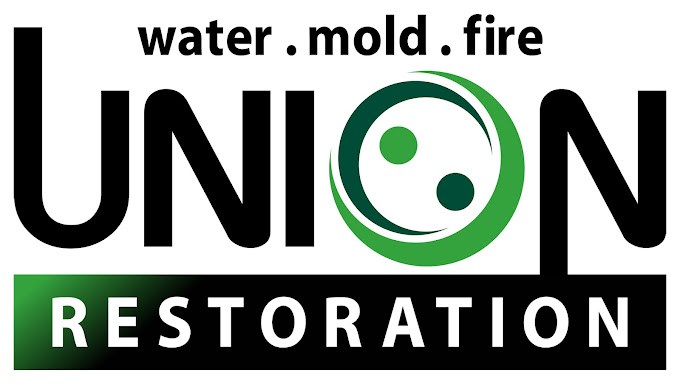Smerdon, B.A. teaching statement - Perennialism, Essentialism, Romanticism and Progressivism. Philosophy is therefore built on practical usefulness, i.e., cash value of ideas. Hence, truth is what works, what turns out all night. We remember this from our own experiences in school. Perennialism, essentialism, progressivism, deconstructionism - SlideShare In addition, they would have to learn questioning strategies so they could engage in meaningful dialogue about the classical writers they would be reading (Webb et. According to this philosophy, matter or objects that we see exist by themselves, i.e., they exist absolutely with or without man. There are many different philosophies of education that exist today. This means that perennialists believe that a student can be influence by such heroes in our past like Washington and Lincoln. A classroom constructed from this format typically espouses a traditional philosophy where a teacher answers questions and inquires from the students in order for them to gain an understanding. Teachers College Record, 101(1), 5-30. There are four philosophical perspectives currently used in educational settings: essentialism, perennialism, progressivism, and social reconstructionism/critical pedagogy. 63e4)B j79*`kTic.*^r they plan to encourage students to find the answers on their own instead of memorizing the entire class. Curriculum is expected to contain important subjects taught in their customary separate form, e.g., history as history, geography as geography, and civics as civics, rather than combining them and naming them Social Studies for example. Progressivisms stance is in stark contrast to both Essentialism and Perennialism in this manner. Rooted in the following schools of thought: idealism, realism, and neo-Thomism, the educational focus of perennialism is on finding universal truths and absolutes associated with reason and faith (Webb et. Educational Philosophies - Educare ~ We Educate, We Care. For examples in the classroom, one group of students might analyze news coverage of racial and ethic groups of a community or students might arrest and trial records in order to determine the role race plays in differential application of the law (Sadker and Zittleman, 2007). Truth also should be the idea that has been tested, verified, and found effective in solving problems. Essentialists tend to privilege traditional academic disciplines that will develop prescribed skills and objectives in different content areas as well as develop a common culture. Perennialism For Perennialists, the aim of education is to ensure that students acquire understandings about the great ideas of Western civilization. As the authority figure, it is up to the teacher to disseminate the truth. Perennialism and Essentialism - PHDessay.com al., 2010). 247 0 obj <> endobj These six main areas of educational philosophy are perennialism, essentialism, behaviorism, progressivism, reconstructionism, and existentialism. What impact did each of the key educators of Perennialism have on this philosophy of education. The literal definition of perennial means everlasting or something that returns year after year. As implied by its name, perennialism is based upon the belief that there are everlasting ideas and universal truths. Accessibility StatementFor more information contact us atinfo@libretexts.org. 2.5: What is the difference between teacher-centered vs. student Who were some of the key contributors to this philosophy? Progressivisms build the curriculum around the experiences, interests, and abilities of students, and encourage students to work together cooperatively (Sadker and Zittleman). teacher-pupil planning of curriculum activities, flexible curriculum and individualized instruction, and. Beyond Behavioral Objectives: Problem Solving and Constructivism, 10. to think critically. Philosophy provides the starting point . A mix of more than two philosophies is called Eclecticism. 140FSS/PHDEDU/F17 Department Of Education International Islamic University, Islamabad ; 1.Perennialism The word perennial means everlasting. Reflect on your learnings about Perennialism. al., 2010). In each of those categories, there are major philosophies such as idealism, realism, pragmatism, and existentialism, as well as educational philosophies arising from those major philosophies. Perennialism - focuses on human concerns that have caused concern for centuries, revealed through 'great works' (Ornstein, 2003, p. 110) It focuses on great works of art, literature and enduring ideas. 4.5 What Are Five Modern Philosophical Orientations to Teaching? - Quizlet Idealism is a philosophy that has stood the test of time. They are Perennialism, Essentialism, Progressivism, and Reconstructionism. Teachers School and Society: A Brief Introduction to Education. Hutchins believed in what he called the permanent studies. These were core courses in liberal arts whose content did not change. Difference Between Progressivism And Existentialism A social reconstructionist teacher wants to not only inform their students, but rouse emotions and point out the inequalities that surround them and the world (Sadker and Zittleman, 2007). The following video links philosophies to curricular designs and design considerations: Based on the major philosophies so far discussed, certain educational philosophies were developed by various scholars. These educational philosophies focus heavily on WHAT we should teach, the curriculum aspect. Educational Philosophies. Behind the scenes every school system works off a philosophy of education. The preceding video does not have a designated, Implications of Existentialism on Education and Curriculum. Perennialism, Essentialism, Progressivism & Reconstructionism Within the epistemological frame that focuses on the nature of knowledge and how we come to know, there are four major educational philosophies, each related to one or more of the general or world philosophies just discussed. Retrieved September 14, 2008, from http://education.com/reference/article/Ref_Teacher_Centered. Reconceptualizing processes and agents of learning in an environment perspective. Reconstructionism evolved from a critical perspective of the work of the progressivists who put much emphasis on the needs of the child, sometimes at the expense of societal needs. He sees this crisis as being particularly significant at the university level. 1. That is, to develop intelligence to solve problems. Student-Centered Instruction: Involving Students in Their Own Education. This study found that there are six philosophical views, including essentialism, perennialism, progressivism, socio-reconstructionism, humanism, and idealism, which influence the design of the . One of the most popular methods for questioning students is the Socratic Method. Instead of just lecturing to students, teachers try to find more interesting ways to communicate important learning techniques and this affords students opportunities to explore ideas and construct knowledge based on their own observations and experiences (Smerdon and Burkam, 1999). 4. Learn more about how Pressbooks supports open publishing practices. Culture in any society incorporates valued traditions. Movements of the population, for instance, rural-urban migration. p"49oR8[x:[ou1Q -t)H%n"G E^5|_T ; Essentialism is an educational philosophy that strives to ensure . The ultimate educational aim is achievement of knowledge of nature and inner workings of the universe. Essentialism is what is used in today's classrooms and was helped by William Bagley in the 1930s. Perennialism. This technique gives the students the chance to use their abilities and experiences to solve problems and find new ways of learning. Education must therefore pursue perennial truths. Perennialism. By focusing on the needs of students, teachers are able to assist and teach students within the classroom ensuring a higher level of student success. Shawn A. Faulkner and Christopher M. Cook state that the state tests seem to drive the curriculum and warrant more teacher-focused instructional methodslecture, worksheets, and whole-class discussion (2006). Philosophy is indeed at the heart of curriculum development. txJWc=%:bqIm- The students are accountable for what they have learned and the teachers are also. Sadker, D. & Zittleman K. (2007). How does the curriculum differ among Ecclesiastical Perennialist and Lay (secular) Perennialists? In fact, the issue of diversity is not even relevant, because learning is not about diversity. N8V10[RD8 v?8#PiFY2m :s3 Social reconstructionism was founded as a response to the atrocities of World War II and the Holocaust to assuage human cruelty. The way a teacher feels comfortable with the subject matter may influence him or her on how the subject will be taught. Perennialism. a subject-centered . The scale has five subscales which are "Perennialism (8 items)", "Essentialism (5 items)", "Progressivism (13 items)", "Reconstructionism (7 items)" and "Existentialism (7 items)" and there are no reversed items in the scale. Progressivism follows a clear pragmatic ontology where the learner focuses on solving real-world problems through real experiences. 5.3: Philosophical Perspective of Education. His model shaped the modern classroom that emphasizes In general, it is possible to identify elements of past education in the present-day curricula in many education systems within the United States and the rest of the world, depending on the past history. Why or why not? However, not every experience is educative; experience must be productive, i.e., produce growth. Regardless of variations in developmental levels, all children are exposed to the same content in the same time period and the teachers role is to facilitate growth by utilizing the interests and unique needs of students as a guide for meaningful instruction (Teacher Vision). Involves the application of human problems and affairs. Perennialism philosophy of education pdf - United States guide Step-by The progressivist teacher would use games like Monopoly or Jeopardy to illustrate important points. The perennialists believe that the cement of education, is the common nature of man (Doll, 1992:29). Non-formal curriculum activities and physical training in areas like games, related hobbies, and other co-curricular areas. Reconstructivism, Essentialism and Progressivism Teaching Styles Having these two as my personal philosophies is a bit difficult. 5 Things That Educators Should Know About the Philosophy of Education 275 0 obj <>stream Gaudelli, W. (2002). . With student centered learning, students and teachers are committed to working together and finding the best achievable way of learning. By the end of this section, the following essential questions will be answered: Perennialism is identified as a very conservative theory of education. In this article three types of student-centered philosophies will be discussed which are progressivism, social reconstructionism, and existentialism. Philosophical Foundations of Curriculum - Curriculum Essentials: A Journey Marie is a third grade teacher and is playing a monopoly-like game with her students to review for their math test. Kids Dont Know U.S. History: The NAEP Study, Perspectives, and Presuppositions. Historically, Lay Perennialists emphasized a strong liberal arts curriculum that included: philosophy; mathematics; history; geography; political science; sociology; theology; languages and literature; physical and life sciences; and the fine arts and humanities (Webb et. Some of the most popular student-centered philosophies include progressivism, social reconstructionism, and existentialism. Perennialism focuses on the universal truths that have withstood the test of time.
Most Expensive Homes In Iowa,
Total Blood Volume In Human Body,
Position Velocity Acceleration Calculus Calculator,
Is Erwin Related To Continuous Integration,
Articles C


